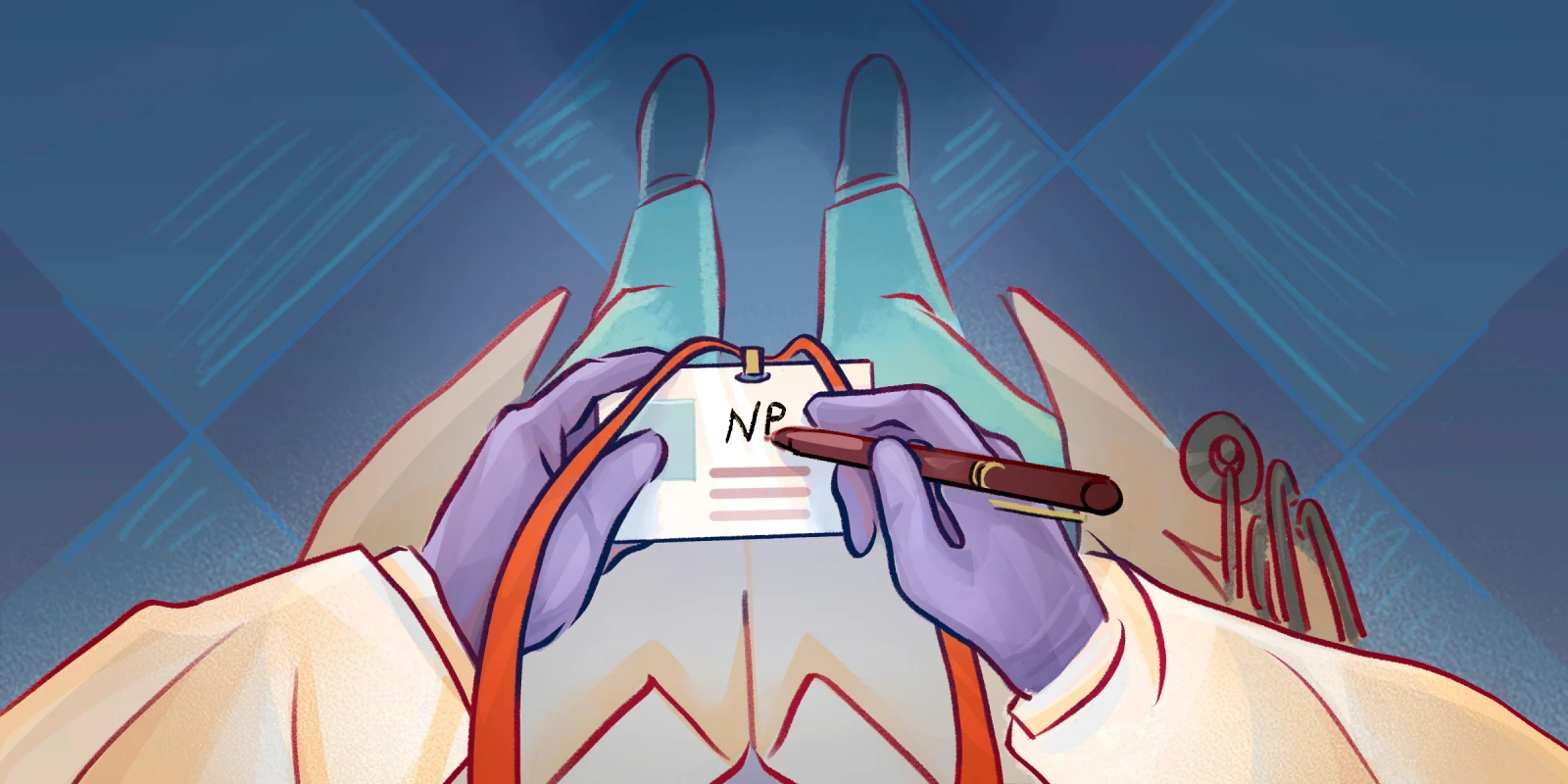When I was almost a year into practice as a psychiatric nurse practitioner, a patient told me mid-appointment they wanted to see another clinician, someone “real.”
I had been gaining my confidence with each new patient I saw. I felt more comfortable prescribing medications, concurrently charting during psychiatric evaluations with patients, and I started to feel less pressured with not prescribing medications every visit – it’s not always warranted.
But one busy morning in community mental health, an older woman in her 70s presented for management of depression.
I began the appointment in my usual way, explaining how the session would proceed, including asking many questions to help her most effectively. I explained my role as a nurse practitioner, and asked if it would be acceptable if I typed while we talked. When she confirmed, I began by asking what brought her in to see me.
She was hesitant but answered the question, explaining that she was on many medications and struggled with depression. Then, a few minutes into our assessment together, the woman paused and asked what my role was again.
Was I a doctor? Where was the doctor? She expressed irritability that a nurse practitioner was seeing her – “I don’t know what that is, I want to see a REAL provider.”
I thought I had been professional and clear with explaining my role and how I could help her when our session began. I had been practicing for about a year at this time and had successfully treated some really challenging patients. I knew I could help this woman too, but not if she didn’t think I could help her.
I was most surprised by how I felt because I wasn’t expecting to feel so quickly brought back to a place where I felt I didn’t belong. Despite the sudden inferiority I felt, I let her know that she absolutely had the right to see a physician instead and that I could connect her with one. I think she was caught off guard by how I responded because she didn’t immediately agree. She asked more questions about my role, assessing my level of competence.
I answered all her questions and reiterated that she could meet with a psychiatrist instead, if she preferred, who would also conduct an assessment and provide quality treatment. I think she was surprised or confused by my confidence and ease with which I understood her perspective and desire to see a “real” provider.
On the inside, I was frustrated, angry, and sad that I had been so quickly broken down to “not good enough” to care for her. The ironic thing is, as a nurse practitioner, I compensate for not feeling good enough at times (pesky impostor syndrome) by working as hard as I can, staying up to date on evidence-based practice, meeting with a collaborating clinician regularly to review difficult cases, and being very intentionally present so that I gather accurate assessment data. It is because I worry that I am not where I belong that I work so hard.
I certainly understand that not everyone wants to see a nurse practitioner. And that’s OK. At the end of the day, the goal is for patients to receive quality patient care and fortunately, patients can expect quality care and outcomes with a physician or nurse practitioner. Whoever they choose to go to, they will be in good hands. Nurse practitioners are newer, and the general public doesn’t always have the best understanding of what a nurse practitioner is – in fact, I’m often asked by family and friends what exactly I do.
The patient ultimately left our session partway through, opting to make another appointment to see a physician instead, someone she felt could provide quality care.
We’re all human, and whenever someone rejects us, it’s hard not to take it personally. That’s why it’s critical to talk about difficult encounters with trusted colleagues who know your value and who can help put the situation in perspective. They can also help you remain objective and provide feedback while also validating your feelings. Self-doubt is the core of impostor syndrome – doubting your abilities and feeling unworthy of being where you are. This feeling is compounded when patients, and sometimes your family, don’t understand your job.
Our job can be further complicated by the constantly changing scope of practice that varies from state to state. It’s vital we explain our roles to patients during initial visits. No Shakespearean monologues needed, but not all patients understand our roles as nurse practitioners in health care. It’s helpful to begin initial visits with a brief introduction of your role and how you’ll help them today.
Nothing is worse than allowing impostor syndrome to take hold and keep us from being in a place, in a role, we truly belong. My hope is that all nurse practitioners recognize their value in the health care system and maintain confidence and a learning mindset to continue providing quality care.
How do you fight impostor syndrome as an NP? Share in the comments.
Claire Ellerbrock, DNP, APRN, PMHNP is a practicing psychiatric nurse practitioner in Columbus, Ohio. She is also the founder and CEO of Stress Free Psych NP, an online course business, created to help psychiatric nurse practitioners feel more clinically competent and confident in practice treating mental disorders. She can be followed on Instagram @stressfreepsychnp. She has no disclosures and no conflicts of interest.
Illustration by April Brust







